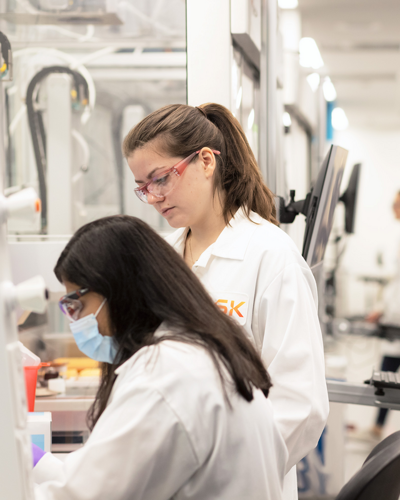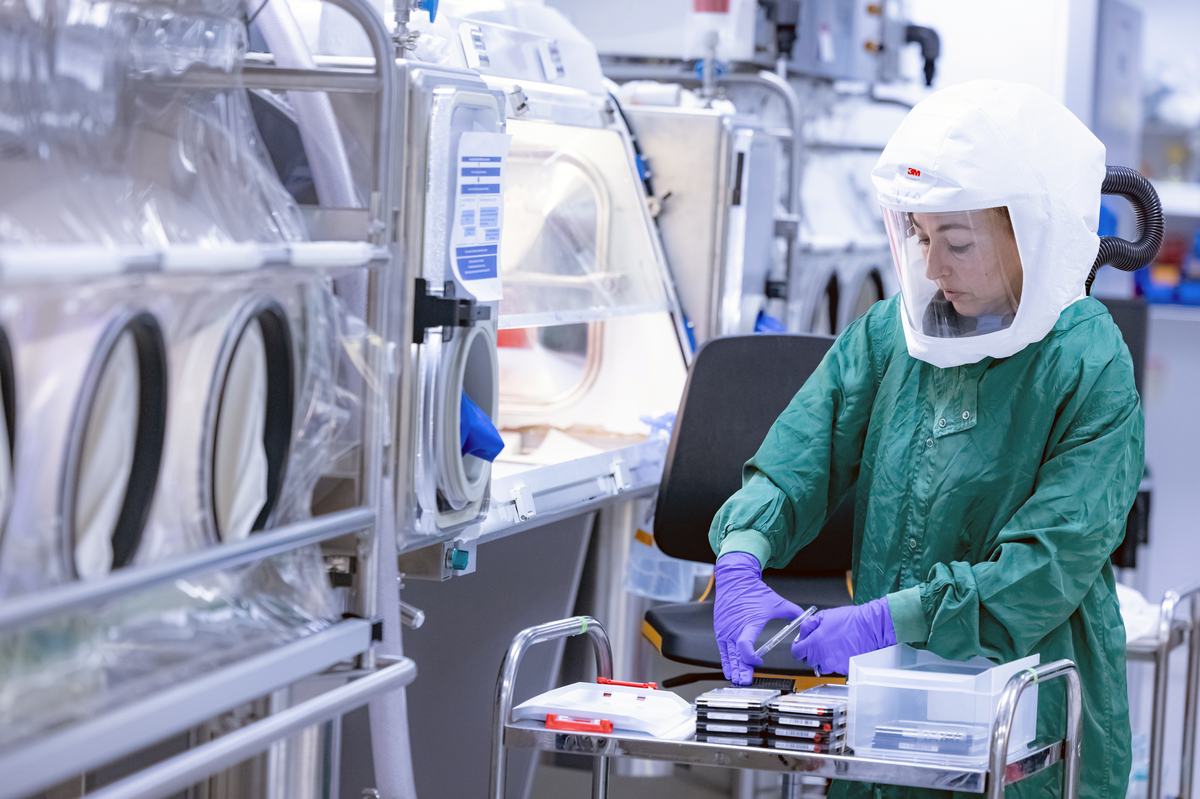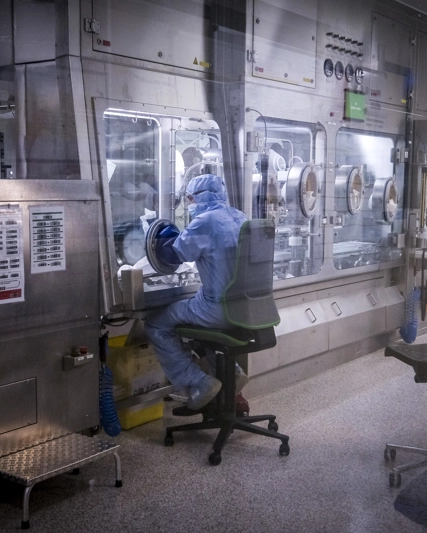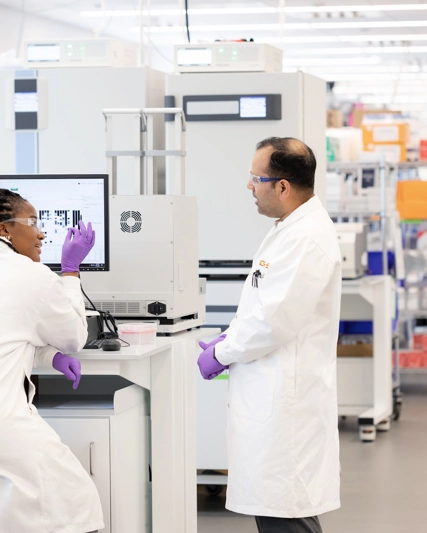Infectious diseases
For over 70 years we have been at the forefront of research into diseases caused by bacteria, viruses, and parasites. Our infectious diseases portfolio is one of the broadest in the industry, and includes vaccines, antibiotics, antivirals and anti-fungals.
Applying our expertise to tackle infectious diseases
Infectious diseases are responsible for one in seven deaths globally. Even common infections can have a major impact on the lives of patients due to lack of access to effective vaccines, medicines or antibiotics. As leaders in infectious diseases, we remain committed to investing in new solutions for prevention and treatment. GSK has pioneered innovation in infectious diseases for over 70 years and our pipeline of medicines and vaccines is one of the largest and most diverse in the industry, with a goal of developing preventive and therapeutic treatments for multiple disease areas or diseases with high unmet needs globally. Our expertise and capabilities in infectious disease strongly position us to help prevent disease and mitigate the challenge of antimicrobial resistance (AMR).
Respiratory viruses
We’ve been leaders in delivering medicines that help manage respiratory conditions for over 50 years. Respiratory illnesses - such as flu, bronchitis, respiratory syncytial virus (RSV), asthma and COPD - have a significant impact on global health. We are committed to driving scientific research that prioritises how we can reduce the burden of respiratory diseases, improve health outcomes, and save lives.
We are also working to stop these illnesses happening in the first place. We research viruses that cause preventable infections which pose a threat to public health, and affect a range of at-risk individuals including older adults and those with certain underlying medical conditions. We are exploring ways to protect against a broader range of viral respiratory infections using advanced vaccine technologies, such as adjuvants and next-generation mRNA.
Anti-infectives research
Antimicrobial resistance (AMR) already causes over one million deaths each year. Without urgent action, by 2050 almost 40 million lives will have been lost. Across our pipeline, we have more than 30 R&D projects including medicines and vaccines relevant to AMR, with 17 targeting pathogens deemed ‘critical’ (by WHO) and/or ‘urgent’ by Centers for Disease Control and Prevention. We are actively addressing the challenge of AMR, including the development of novel antibiotics for antibiotic-resistant infections.
AMR is particularly prevalent in low-resource settings. We continue to research treatments against several enteric diseases that contribute to the burden of AMR, including salmonella, typhoid, shigella and paratyphoid fever. We collaborate with governments, international organisations, and academic institutions to share knowledge, resources, and expertise to accelerate the development of new antibiotics, promote responsible use of existing treatments, and implement effective strategies to combat AMR on a global scale.
Drug-resistant infections: People suffering from common infections such as urinary tract infections (UTIs) or gonorrhoea are facing increasing risks of treatment failure due to resistance to currently available antibiotics. UTIs are one of the most frequent clinical bacterial infections in women, accounting for nearly 25% of all infections. Over half of all women are affected by uncomplicated UTI in their lifetime, with between 10-20% already experiencing treatment failure. Globally, the bacteria causing gonorrhoea infection, Neisseria gonorrhoeae, has progressively developed resistance to several classes of antibiotics. If left untreated or inadequately treated, gonorrhoea can lead to infertility and other sexual and reproductive health complications. The emergence of new drug-resistant strains is a major concern, with N. gonorrhoeae recognised as a priority pathogen by the WHO.
As resistance to treatments is steadily increasing globally, our growing anti-infectives portfolio demonstrates our continued commitment to innovate in a field where significant unmet medical need remains.
Shingles
Shingles or herpes zoster is a painful and debilitating disease caused by reactivation of the same virus that causes varicella (chickenpox), sometimes with serious consequences like long-term nerve pain and loss of vision. One in three people will develop shingles in their lifetime.
We collaborate with healthcare partners to continuously improve our understanding of shingles and develop innovative solutions that can enhance prevention, diagnosis, and management of the disease.
Bacterial infections
Meningitis: One in six people who get bacterial meningitis die and one in five face serious complications. To protect as many children and adolescents as possible, we are working to build a comprehensive understanding of the disease mechanisms to effectively target and treat meningitis. We are deepening our understanding of the different serotypes of the bacteria that cause the disease to help us to innovate so that we can specifically target and combat the strains of bacteria causing meningitis. This approach may offer broader protection and can lead to more effective prevention and treatment strategies.
Pneumococcal disease: The name for any illness caused by the streptococcus pneumoniae bacterium, such as pneumonia, sepsis or meningitis. Approximately one million children die of pneumococcal disease every year. Vaccines available today only cover about 60% of circulating disease, leaving many vulnerable people at risk of being severely sick or hospitalised with pneumonia, sepsis or meningitis – and even death. Research into vaccines with broader protection aims to enhance our understanding of how these diseases can be prevented from the start. We are leveraging the MAPS technology in our research on pneumococcal disease exploring its potential to address areas of significant scientific and public health need.






